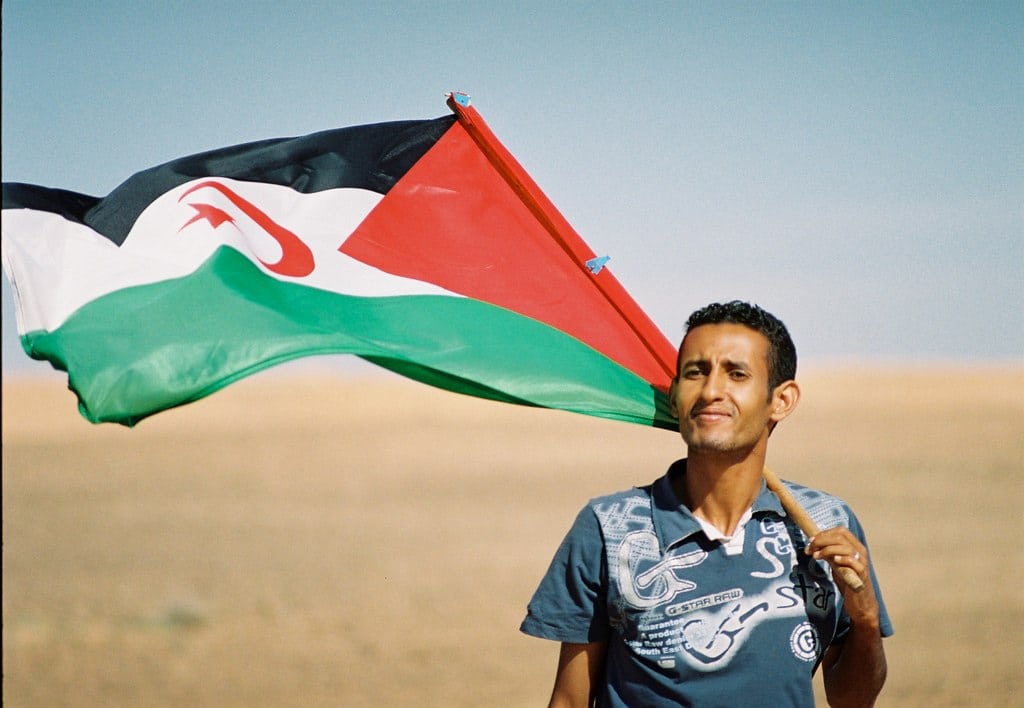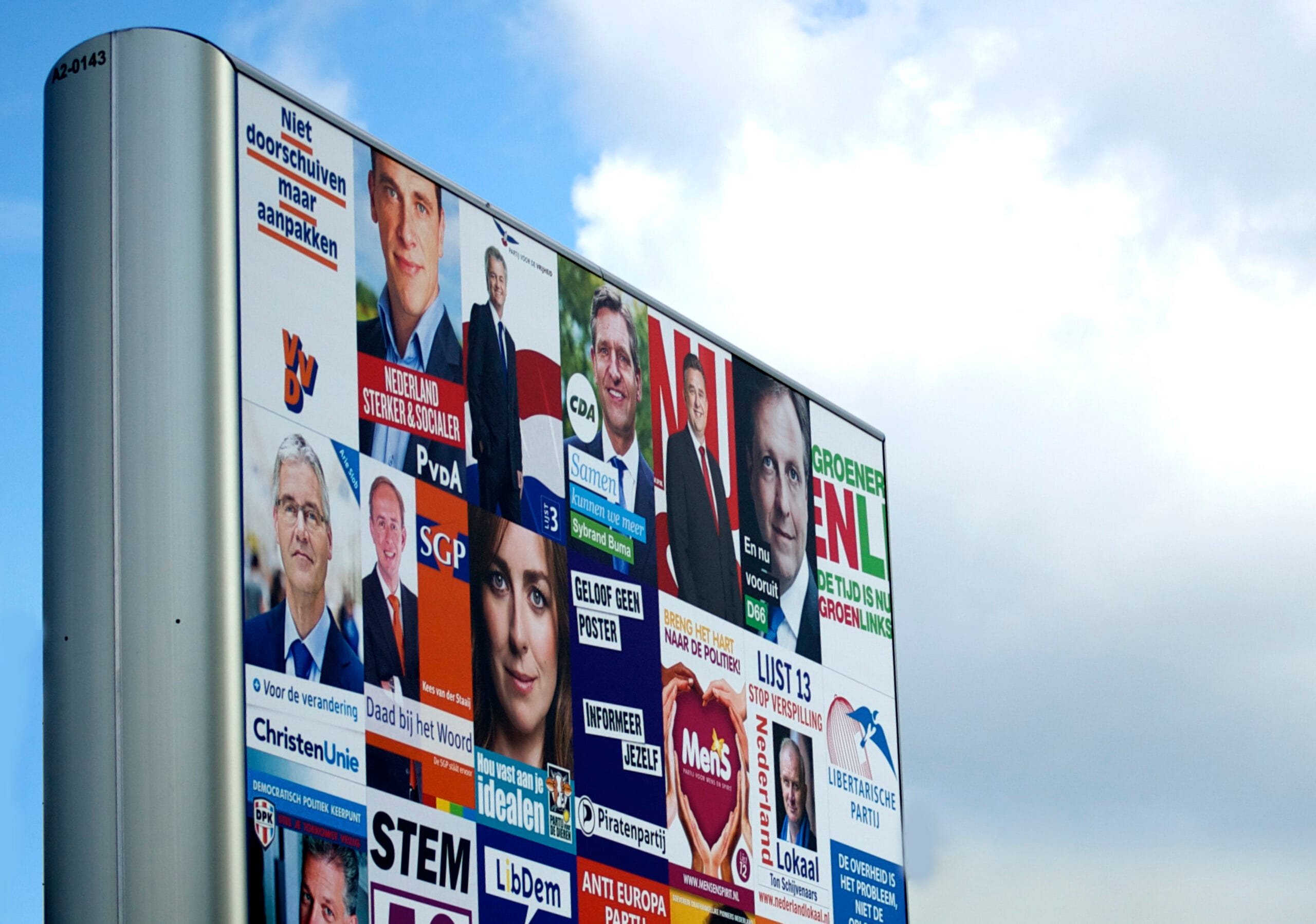Photo: A Sahrawi with the flag of the Sahrawi Arab Democratic Republic -. Wikimedia Commons
On 25 May, 30 British MPs, mostly from the ruling Conservative Party, endorsed the British government called on to support Morocco's proposal for the governance of Western Sahara. This so-called Moroccan autonomy plan, proposed in 2006, offers Rabat control over national security and foreign relations of Western Sahara, while giving limited autonomy to the original Sahrawi population.
Western Sahara is a disputed territory on the North African coast, bordering Morocco, Mauritania and Algeria. The area was a Spanish colony until 1975. After Spain's withdrawal, Morocco annexed much of the region, leading to a protracted conflict with the Polisario Front, an independence movement seeking an independent state for the Sahrawi people: the Sahrawi Arab Democratic Republic.
British MPs see the Moroccan initiative as a viable route to lasting peace and stability. They point out that the plan already has broad international support, including from the United States, France, the Netherlands and more than 80 other countries worldwide. These countries see the plan as a pragmatic solution to the conflict, which has been going on for decades and affects regional stability.
Independence or integration with Morocco?
Although the Moroccan autonomy plan enjoys international support, there remains considerable opposition stemming from the desire of many Sahrawis for full independence. From 1975 to 1991, the Polisario Front waged an armed struggle against the Moroccan presence in Western Sahara. In 1991, a ceasefire was established under the auspices of the United Nations. This agreement included the promise of a referendum in which the people of Western Sahara would choose between independence and integration with Morocco, but this referendum was not held. Morocco rejects namely holding a vote on self-determination in which independence is an option; it considers Western Sahara an integral part of the kingdom. In 2020 flared the battles again and the truce was broken.
The Polisario Front still demands referendum on self-determination, while Morocco insists on its autonomy plan. This Moroccan autonomy plan aims to end tensions by giving the region self-government under Moroccan sovereignty. Critics, however, including the Polisario Front and many Sahrawi, believe this plan undermines their right to self-determination. They urge the United Nations to keep its promise of a referendum on the future of Western Sahara, which has so far not taken place.
International reactions: tensions further inflamed
In 2020, the United States, led by President Donald Trump, recognised Morocco's claim to Western Sahara. This recognition was part of a broader diplomatic deal in which Morocco agreed to normalise relations with Israel. This move marked a major shift in US foreign policy and was seen as a strategic victory for Morocco, as it was the first major Western power to recognise Rabat's sovereignty over the disputed territory.
Israel recognised Western Sahara as Moroccan territory in 2023, becoming the second country after the United States to justify Morocco's controversial annexation. Israel is even considering opening a consulate in Dakhla, a town in southern Western Sahara. This diplomatic recognition by Israel is seen as a further strengthening of ties between the two countries, which had already improved since the 2020 normalisation agreement.
These controversial recognitions have further fuelled tensions in the region, especially with Algeria, which has Supporting the Polisario Front and against Moroccan rule in Western Sahara. The issue remains a major obstacle to regional stability and diplomatic relations between the countries involved.
The world's second longest-standing refugee situation
The tensions make the humanitarian situation in Western Sahara worrying. Many Sahrawi live under heavy Moroccan repression in the occupied territory or in refugee camps in Algeria. Algeria has been hosting Sahrawi refugees for 50 years, making it the world's second-longest refugee population. It is estimated that 173.600 people in five refugee camps need humanitarian aid. These Sahrawi refugees live in camps near the city of Tindouf in western Algeria, an area characterised by temperatures that can reach above 50 degrees Celsius and very little rainfall. The harsh and isolated desert, with frequent sandstorms, limits their ability to earn a living and reduces their economic opportunities.
Human Rights Watch reports that Moroccan authorities suppress human rights and independence activists in Western Sahara through intimidation, surveillance and, in some cases, prolonged detention after unfair trials.
A call for respect for self-determination
The British MPs' letter puts support behind a plan that many see as a violation of fundamental rights and international agreements. The Moroccan autonomy plan is a way of legitimising control over Western Sahara without giving the original population their right to self-determination. Moreover, the British MPs' call ignores United Nations resolutions calling for a referendum on the future of the region.
To achieve a lasting solution, it is essential to respect the Sahrawi people's right to self-determination. This means that the international community must keep up pressure on all parties involved to honour the promises of previous UN resolutions and allow for a fair referendum. Only by respecting the voice of the Sahrawi people and actively involving them in the peace process can a solution be found that does justice to all parties involved and ends the long-standing conflict in Western Sahara.




